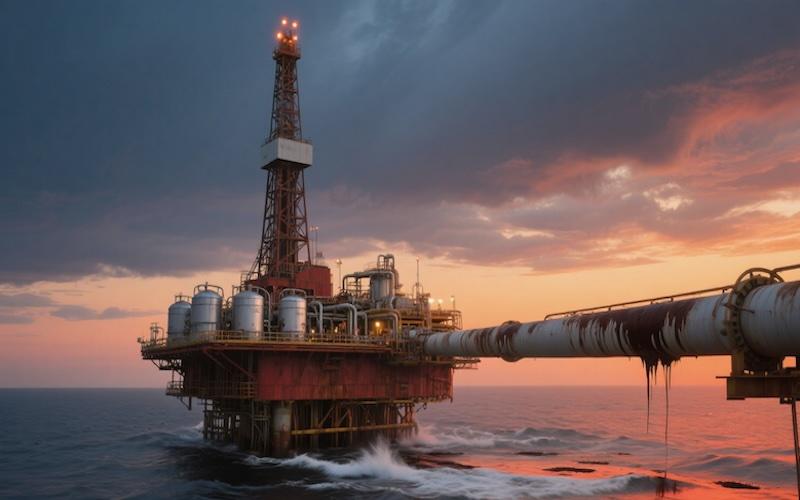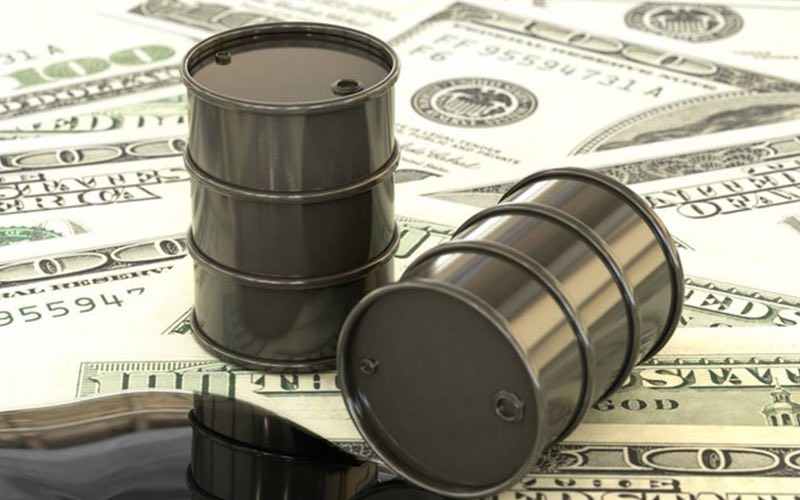Trump's penalty threat puts India in a difficult position over Russian oil
2025-08-05 02:09:49

Indian officials' response: insist on continuing to buy Russian oil
On August 2, 2025, two unnamed senior Indian officials clarified that Indian government policy had not changed and that oil imports from Russia would continue. They emphasized that the Indian government "had not issued any instructions to oil companies" to reduce imports from Russia, and that "these are long-term oil contracts; purchases cannot be stopped overnight." One official further stated that the recent reduction in purchases was not due to Trump's threats, but rather to economic factors such as reduced Russian exports, stable Indian demand, and lower discounts on Russian oil.
Indian Foreign Ministry spokesman Randhir Jaiswal reiterated at a press conference that India's policy toward Russia will not be swayed by external pressure, and that energy import decisions are "based on the available price of oil in the international market and the prevailing global situation." The Times of India, citing government sources, stated that Indian refineries continue to purchase Russian crude oil primarily due to economic factors such as price and transportation.
In a previous interview, Indian Energy Minister Hardeep Singh Puri defended New Delhi's actions, saying the purchase of Russian oil helped stabilize global oil prices and was even encouraged by the United States. He said: "If countries had stopped buying Russian oil, the price might have risen to $130 per barrel. In that situation, everyone, including our American friends, advised us to buy Russian oil, but within the price cap."
Trump's threats and tensions between India and the US
On July 30, 2025, Trump announced a 25% tariff on Indian goods imported to the US, effective August 1, and unspecified "additional penalties" for India's purchases of Russian oil and military equipment. He complained on social media that India's tariffs were excessively high and its non-tariff barriers were "onerous and burdensome," resulting in a smaller trade volume between the US and India. He also publicly accused India of "playing both sides," purchasing large quantities of Russian oil and weapons while imposing high tariffs on American companies. On July 31, Trump signed an executive order imposing reciprocal tariffs ranging from 10% to 41% on 69 trading partners worldwide, with India facing a 25% tariff.
On August 1, Trump further claimed that he had "heard" that India would no longer purchase oil from Russia, calling it a "good step," but he also said he "didn't know if that was true." However, just hours later, Indian officials directly refuted this claim, stating that India had not changed its purchasing policy. The Times of India headlined a report titled "India will continue buying Russian oil despite heavy US tariffs," highlighting India's strong response to Trump's threats.
On July 14, he publicly threatened that if Russia did not reach a peace agreement with Ukraine, any country that continued to purchase Rosneft would face punitive tariffs of 100% or even 500%. After the Stockholm negotiations, US Treasury Secretary Benson warned that countries that continued to purchase Rosneft could face high "retaliatory tariffs."
Analyst View: Geopolitical and Economic Game
Bob McNally, president of consulting firm Rapidan Energy Group, said that Trump's threat has confused India, especially after the Biden administration's relatively tolerant attitude towards India's purchase of Russian oil. "Now our attitude has changed drastically, and we are asking, 'What are you trying to do by buying so much Russian oil?'" He believes that Trump's tough stance may force India to face a difficult choice: "If Trump decides to risk the entire Indo-US relationship, it is hard to imagine that India will continue to import those 1.5 million barrels of Russian crude oil." McNally pointed out that India needs to find a balance between energy security and US pressure.
Vishnu Varathan, managing director of Mizuho Securities, analyzed that the US threat is a "clear and present danger" to India. He believes that New Delhi may continue to remain non-committal on oil purchases while assessing the pros and cons of using the "Russian option" as a bargaining chip. Varathan suggested that India could explore other sources of cheap oil, such as Iran (if it can obtain a US waiver) or OPEC+ members under US pressure. However, replacing Rosneft would incur additional costs. For example, Saudi oil is sold at a higher price to Asian countries due to OPEC's "Asia Premium" policy.
Ajay Srivastava, founder of the Global Trade Initiative, an Indian think tank, pointed out that Trump's tariffs are not just economic measures but also a pressure tactic intended to force India to align geopolitically with the United States. He said, "The message is clear: agree to the US's geopolitical views and sign the agreement, or face comprehensive tariffs—India is being used as a negative example to other countries." Srivastava estimates that due to the tariffs, India's exports to the US could fall by 30% in the current fiscal year (ending March 2026), from $86.5 billion to $60.6 billion, with petroleum products, pharmaceuticals, and electronics being the hardest hit.
Saran, a former senior Indian official, said that India's decision to reduce Iranian oil imports to zero under US pressure during Trump's first term was economically "pointless." He believes India may currently adopt a wait-and-see approach, assessing whether Trump's threats are merely short-term pressure tactics. Saran emphasized that given the domestic economy's sensitivity to oil prices, India must ensure that its import sources are diversified and affordable. "In a sense, this is a national security imperative," he said.
Indian officials have made it clear that bilateral relations should not be affected by third countries. The Modi government is dissatisfied with the deterioration of US-India relations and believes that US policies should not influence its energy choices.
On the social media platform X, an Indian media outlet posted that India's response to Trump was uncompromising, publicly accusing the US of "hypocrisy" on the Rosneft issue and emphasizing its commitment to "safeguarding national interests and economic security." This post reflects the strong backlash against Trump's policies in India.
Why India insists on buying Russian oil
Since the outbreak of the Russo-Ukrainian conflict, Russia has become India's largest oil supplier. By 2024, Russian oil will account for 36%-40% of India's total imports, averaging approximately 1.75 million to 2 million barrels per day, significantly higher than the pre-war figure of less than 100,000 barrels per day (2.5%). International Energy Agency data shows that by 2024, 70% of Russia's crude oil exports will go to India.
Indian officials argue that cheap and stable supplies of Russian oil are crucial to economic growth, and that halting imports could cause oil prices to soar and threaten energy security.
India's energy cooperation with Russia is also underpinned by deep geopolitical ties. During the Cold War, the Soviet Union was a quasi-ally of India, providing substantial weapons and repeatedly using its veto power to support India on India-Pakistan issues. Indian Foreign Minister S. Jaishankar once called the India-Russia relationship "the unchanging constant in world politics." Frequent meetings between Putin and Modi have further solidified the two countries' strategic partnership in energy, military, and nuclear energy. Analysts believe that this deep interdependence makes it difficult for the United States to alter India's strategic calculations through single economic levers, such as tariffs.
The complex game of India-US relations
While US-India relations have warmed in recent years, with Trump and Modi displaying close interactions on numerous occasions, Trump's tough policies are disrupting this balance. Indian opposition parties have questioned Modi's foreign policy. Congress Party President Mallikarjun Kharge criticized Trump's tariffs, saying they would harm India's small and medium-sized businesses and farmers, and questioned whether Modi's "friendship" with Trump has failed to protect national interests.
Indian Commerce and Industry Minister Piyush Goyal said the Modi government is reviewing the impact of Trump's tariffs and gathering feedback from exporters and industry groups, and will take all necessary measures to safeguard national interests. Indian sources familiar with the matter revealed that New Delhi is considering increasing imports of natural gas, communications equipment, and gold from the United States to narrow its trade surplus with the US, but is refusing to open up its agricultural and dairy markets because farmers are a political constituency for the Modi government.
Impact on global energy markets
Due to growing concerns about supply disruptions from Rosneft, the OPEC+ group agreed on August 3rd to increase production by 547,000 barrels per day in September to ease market tensions. However, replacing Rosneft remains costly for India. For example, Saudi Arabian oil commands a higher price due to its "Asia Premium" policy, while Trump's sanctions on Venezuela complicate India's search for alternative sources.
Conclusion
India faces a dilemma under Trump's tariff and penalty threats: on the one hand, long-term energy cooperation and economic benefits with Russia, and on the other, potential risks to its relationship with the United States. Strong statements from senior Indian officials and analysts suggest New Delhi prefers to safeguard energy security and national interests rather than succumb to external pressure. However, Trump's tough policies could further exacerbate tensions in India-US relations, impacting global energy markets and geopolitical dynamics.
- Risk Warning and Disclaimer
- The market involves risk, and trading may not be suitable for all investors. This article is for reference only and does not constitute personal investment advice, nor does it take into account certain users’ specific investment objectives, financial situation, or other needs. Any investment decisions made based on this information are at your own risk.





















